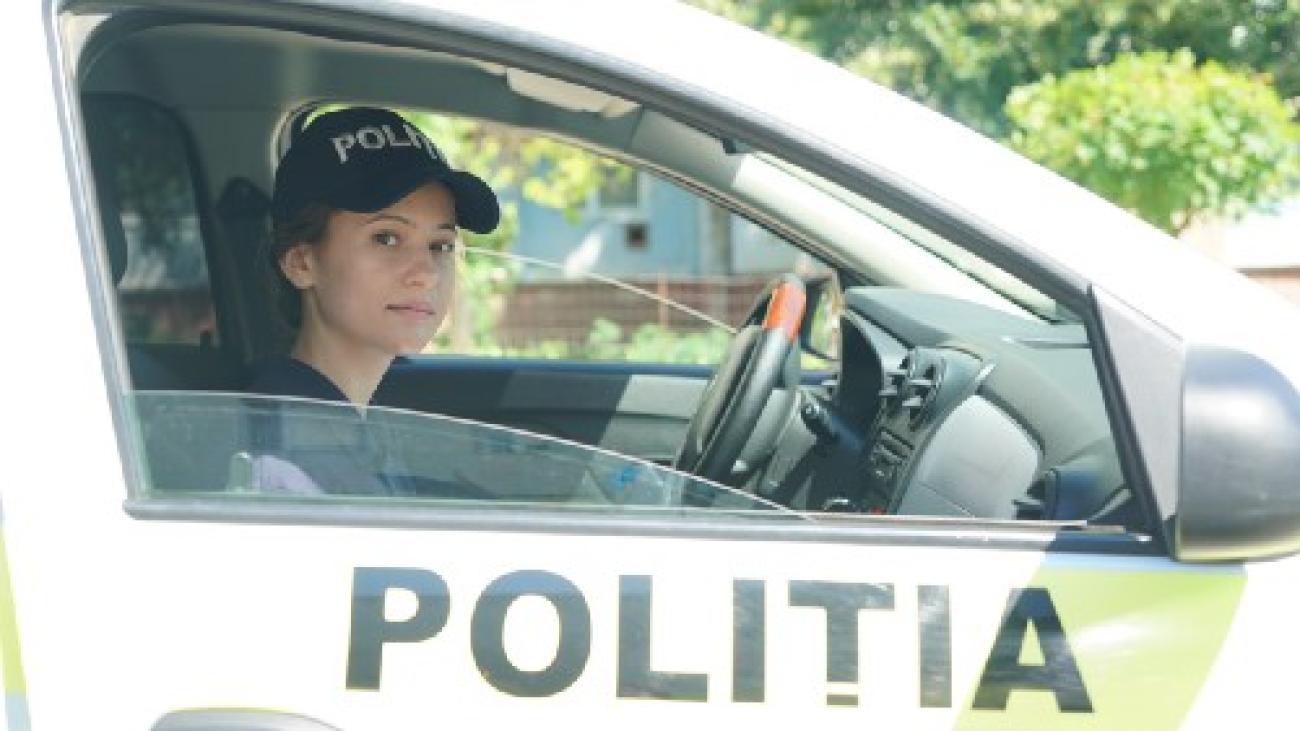It’s time for more women to join the police force in Moldova

Ever since she was a child, Eleonora had wanted to be a police officer.
But no one quite expected that by the time she turned 21, she would already have one year and a half of experience on the force.
She was born in a small village in the Cahul district in Moldova to a family with six children. Her elder brother was a border police officer. Every morning, Eleonora would follow him around as he put on his uniform and went to work. Even back then, she knew that one day she would follow in his footsteps.
By the time she turned 15, her decision was set in stone. She knew she was right for the job. She had a strong sense of fairness, she loved interacting with people, and she wanted to make the world a better place. Confident that anyone could see just how determined she was, that year she submitted her application to the National Border Police College in Ungheni. But she wasn’t accepted.
She decided she would try again after graduating from high school. But things took a turn when one summer, while working in a restaurant, she met Iurie Briceag, the Chief of the Police Inspectorate in Cahul. Upon finding out about her dream to become a police officer, he suggested she should apply for a job at the inspectorate.
“The next day I submitted all the necessary documents to the Human Resources Department,” Eleonora remembers. “But I was rejected because my height and my weight did not comply to the criteria.”
Eleonora was 2 centimeters shorter and 7 kilograms lighter than the evaluation grid advised. She was really disappointed, but Chief Briceag told her not to give up. She spent the summer hanging on to a rail for hours at a time, because some friends told her it would help her grow taller. She went on a weight gain diet. And she kept submitting her application.
Still, she was rejected eight times. But one day, six months later, her perseverance paid off and she finally received her police badge. She was only 19 years old.
Today, Eleonora Florea is a statistics sub-officer of the Operational Management Section at the Police Inspectorate in Cahul. But she has also worked as a patrol police officer and she was good at it. She is firmly convinced that it’s important to listen to citizens, to show interest in their problems and to win their trust in order to provide them with the necessary assistance. And she believes more women should join the police force.
“We need to have both women and men on the police force. Usually, a woman is able to interact better with another woman or a child,” she says. “Women and men can perform equally well as police officers, they can fulfill the same roles and deal with any challenges.”
Eleonora is part of a new wave of women that have joined the police force in Moldova. The current Police Development Strategy for 2016-2020 has a special focus on increasing the number of women in the police force up to 25 percent, including a 50 percent increase for women in management positions. UNDP, under a project financed by the U.S. Government, supports the Police in rethinking and redesigning its recruitment system in a more gender-responsive and inclusive way, so that women and men are provided with equal opportunities in entering the profession. Current figures show that about 18 percent of police employees are women, but they mostly do administrative jobs.
“Many applicants might not possess Eleonora’s determination and give up after being rejected a couple of times. We need to ensure that the recruitment process is set up in such a way to be equally accessible for both women and men,” noted Alexandru Cocirta, Programme Analyst at UNDP Moldova.
But the work doesn’t stop with recruitment. There are still other gender inequalities to address and gender disparities persist in many departments. Therefore, the police are also organizing different actions to support and promote gender equality within its ranks. In 2017, the Association of Women in Police was created to address problems encountered by women police officers, support them to advance in their careers, and raise awareness about equal opportunities among their colleagues. Today, the association has over 150 members.
Eleonora is proud of being a police officer and she does not see herself in any other profession. This year she made another important step forward: she has graduated from the Military Department and took the military oath.
In parallel, she continues her studies at the Faculty of Law and wants to get a PhD in this field. Her biggest goal is to become a criminal investigation officer. With the right support, she might accomplish that goal very soon.

